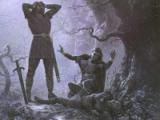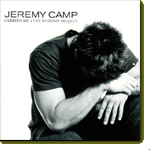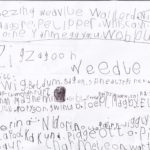Dark Is The Stain: The Fast
“Dress in sackcloth and lament, you priests;
wail, you ministers of the altar.
Come and spend the night in sackcloth,you ministers of my God,
because grain and drink offeringsare withheld from the house of your God.
Announce a sacred fast;proclaim an assembly!
Gather the eldersand all the residents of the land
at the house of the LORD your God,
and cry out to the LORD.
Woe because of that day!For the Day of the LORD is near
and will come as devastation from the Almighty.”
~Joel 1.13-15
Two weeks ago, Fred summarized Lent as
“the traditional forty-day season of self-examination, repentance, prayer, and fasting in preparation for the solemn commemoration of Jesus’ death during Holy Week, and the joyous celebration of His resurrection on Easter Sunday.
Now, if you don’t observe Lent, that’s okay. I’m just using it as a jumping-off point to explain why I’m writing a series of posts about death in speculative fiction.
Lent starts out on Ash Wednesday with an affirmation of our mortality: Remember, you are dust, and to dust you will return. It steadies me a little, hearing that, and sets me off on a journey along roads I’d rather not travel, given the choice. My life on this Earth will end someday, maybe sooner than later. What have I done with it? What am I doing with it? What should I do with it from this point forward? When I’ve reached the end, what will happen? Will I be ready?”
Fasting is definitive in prayer and worship. It demonstrates devotion to a specific end, a kind of focus. It’s a particular way of saying “I’m giving up this thing because I want more of this other thing.” And, as far as Jesus is concerned, it’s not a matter of “if” but “when” you fast, same as it’s “when,” not “if” you pray. In fact, he spends a great deal of time discussing what kind of fasting is proper and what isn’t.
Scripture itself provides many examples of it: King Saul declared a fast for his army until they defeated their enemies. (This was one his son Jonathan didn’t hear, and, when the men told him, he pronounced his father foolish for making his men march, then fight, on an empty stomach.) Many times in Israel’s history it was common to declare a nation-wide fast. Esther prayed and fasted for three days before approaching Xerxes; and her cousin Mordecai put on sackcloth and ashes outside the palace gate to get her attention.
The ritual is often also associated with a state of mourning, because apparently people didn’t look much different than when they wore sackcloth and ashes for a formal period of grieving. It can be associated with distress or repentance, too.
I used to have this habit of randomly fasting, at least for breakfast and lunch. I’m admittedly out of practice, but for me it was a matter of making a habit, making the discipline familiar instead of foreign. Fasting has a few rules. You don’t announce it to the world. You don’t make a show. You are giving up one thing and replacing it with a greater thing.
Prioritizing, in other words.
I have this friend who’s been praying for more time to read her Bible. She’s already getting up at about 4:30 in the morning, but lately she’s felt an impression that she should get up even earlier so she can read before work instead of during or after (her job allows it). I have another who’s worked his schedule out so he can find more time to write.
That’s really what Sabbaths and retreats are for, too: they’re saying “I’m walking away from everything else so that I can fix my eyes on Christ.”
One reason I loved Karen Hancock’s “The Enclave” is because the book dealt full-on with what’s important and what we do and don’t do to stay focused on what’s important; and she did so with characters who ate, slept, lived, and breathed their jobs. Some gave up. Some went to bed and woke up at random hours to squeeze in prayer – fasting from sleep, as it were.
I used to think it was cheating to fast from anything other than food and drink, honestly. I’d never say anything, but inwardly I was a bit snobby about it. “That’s not a real fast,” I’d think, and inwardly sneer at someone’s “inability to do the real thing,” as if sincerity were based solely on what you were abstaining from.
Yeah, I was a snot. I got better . . . at least about that. Isaiah 58 has plenty to say regarding what qualifies as a righteous fast; and Paul actually had to tell married couples they couldn’t abstain from one another without mutual consent on the part of both spouses. No lie.
Either way, God’s squelched my ignorance, to use a former professor’s phrase. Scripture would have us understand that whether we abstain from something or not, take a vow – which, I think it’s James who says it’s better not to vow – or not, recognize particular holy days or not, to do it all in the name of the Lord.
Fix our eyes on him, in other words.
Fasting has a catch. You don’t tell anyone. (My mom’s request was that we tell her so she could plan dinner; and I made a point to make sure my college roomie/best friend wouldn’t worry, but that was it.) It’s a thing that, once you’ve drawn attention to it, loses its meaning. It goes back to the joke about the dad asking his son why he had his eyes open during prayer. Clearly, the dad wasn’t focused on the pastor’s prayer if he was watching his son. (Or he’s like me, and just prays with his eyes open.) Either way, to seek approval for fasting is to lose sight of your “greater thing.”
I get lost in story. Really, really lost. I’ve started doing with TV shows and movies the way I’ve always done with book series: binge/purge. I used to joke that I had two modes: writing and reading, and I was never in both at the same time. So I’d write for two or three weeks, almost non-stop, and then burn out and revert into reading mode for about the same amount of time, finally coming up for air in time to go back into writing mode. I can read a trilogy of 500 pages a book in two days and watch an entire season in a week and a half (I know there are some who can do it faster, but my brain turns to goo if I watch too much tv).
 Such is the life of a storyteller.
Such is the life of a storyteller.
Fasters don’t neglect their bodies–which was Jonathan’s point to King Saul. People with diabetes or other health concern should do their homework before fasting from food. The point is devotion, not starvation or comas. Similarly, writers have one body. It’s easy to overwork our brains and neglect our bodies. My dad has to stay after me with regards to this one. I’m the person who forgets to eat and will stare at a screen or book all day. Ultimately, it will affect the mind too, and neither is a healthy state. Moreover, the point of fasting is not to diet (and simply not eating is unhealthy and no diet anyway) or lose weight; and neither is the point of cutting something out or adjusting a schedule so you can binge/purge on a writing high.
There’s something to be said about secrecy. A friend of mine talks about ‘the discipline of Secret,’ meaning that there are some things that are secrets between you and God and you just don’t tell anyone else. And, as far as writing goes, I’ve never really felt a need to tell people things like “I’m ditching social media so I can get an extra hour of writing in.” Moreover, part of this idea of secrecy is that you don’t look the part. Remember Jesus’ warning to people who would walk up and down the streets looking the part so they’d get pity for being in a state of fasting? Those people.
The writing equivalent is more akin to people who neglect family and other responsibilities. Don’t fail to file your taxes so you can get that hour in. Don’t skip your kid’s parent-teacher meeting. Don’t get mad because your mom asked you to run an errand.
And, just as I’ve learned there’s many ways to fast, so there are many ways to prioritize so as to focus on writing productivity. Ultimately, you can read a hundred books on fasting and a hundred books on how to approach the writing life, but in the end it’s going to come down one goal: lament, mourning, distress; determination, devotion, reflection & meditation; wordcount, research, editing, characterization, storyboarding. But fix your eyes, and don’t let anything alter your heart, mind, attitude, or bowed head.
on writing productivity. Ultimately, you can read a hundred books on fasting and a hundred books on how to approach the writing life, but in the end it’s going to come down one goal: lament, mourning, distress; determination, devotion, reflection & meditation; wordcount, research, editing, characterization, storyboarding. But fix your eyes, and don’t let anything alter your heart, mind, attitude, or bowed head.
“The LORD is good to those who wait for him,
to the soul who seeks him.
It is good that one should wait quietly
for the salvation of the LORD.
It is good for a man that he bear
the yoke in his youth.
Let him sit alone in silence
when it is laid on him;
let him put his mouth in the dust—
there may yet be hope;
let him give his cheek to the one who strikes,
and let him be filled with insults.
For the Lord will not
cast off forever,
but, though he cause grief, he will have compassion
according to the abundance of his steadfast love;
for he does not afflict from his heart
or grieve the children of men.”
~Lamentations 3:25-33










































This is an important point, and one I’m seeing more often this year in conversations about Lent. There’s a balance to fasting in which the void left by abstaining from the non-essential thing needs to be filled with something essential to spiritual health and growth. Most often, it’s prayer, but it can also translate to time spent ministering to others or applying the resources that would have been spent on ourselves for the food, drink, or whatever to those in need.
Likewise, a “writing fast” might involve setting my own projects aside to focus on helping other people with manuscript review and editing, etc.
I just wrote on the history of lent, and some thoughts on it two weeks ago. It’s funny to see it here. I think lent is on the mind of a lot of folks do to the season. One of the most interesting things I found about fasting (any fasting) is that the Orthodox Church calls fasting without prayer as the fast of demons. Why? Because the demons don’t eat and neither do they pray. I was very convicted. I enjoyed your thoughts very much on this. Thanks for sharing 🙂
Good post, Kaci. I’m seeing more and more emphasis on prayer on the Internet, on the radio, in my own church. It’s encouraging! I think it’s always good for us to think about what can enhance our spiritual lives. And for writers, it’s always good to think about what can help us to grow in that arena. Thanks for this.
Becky